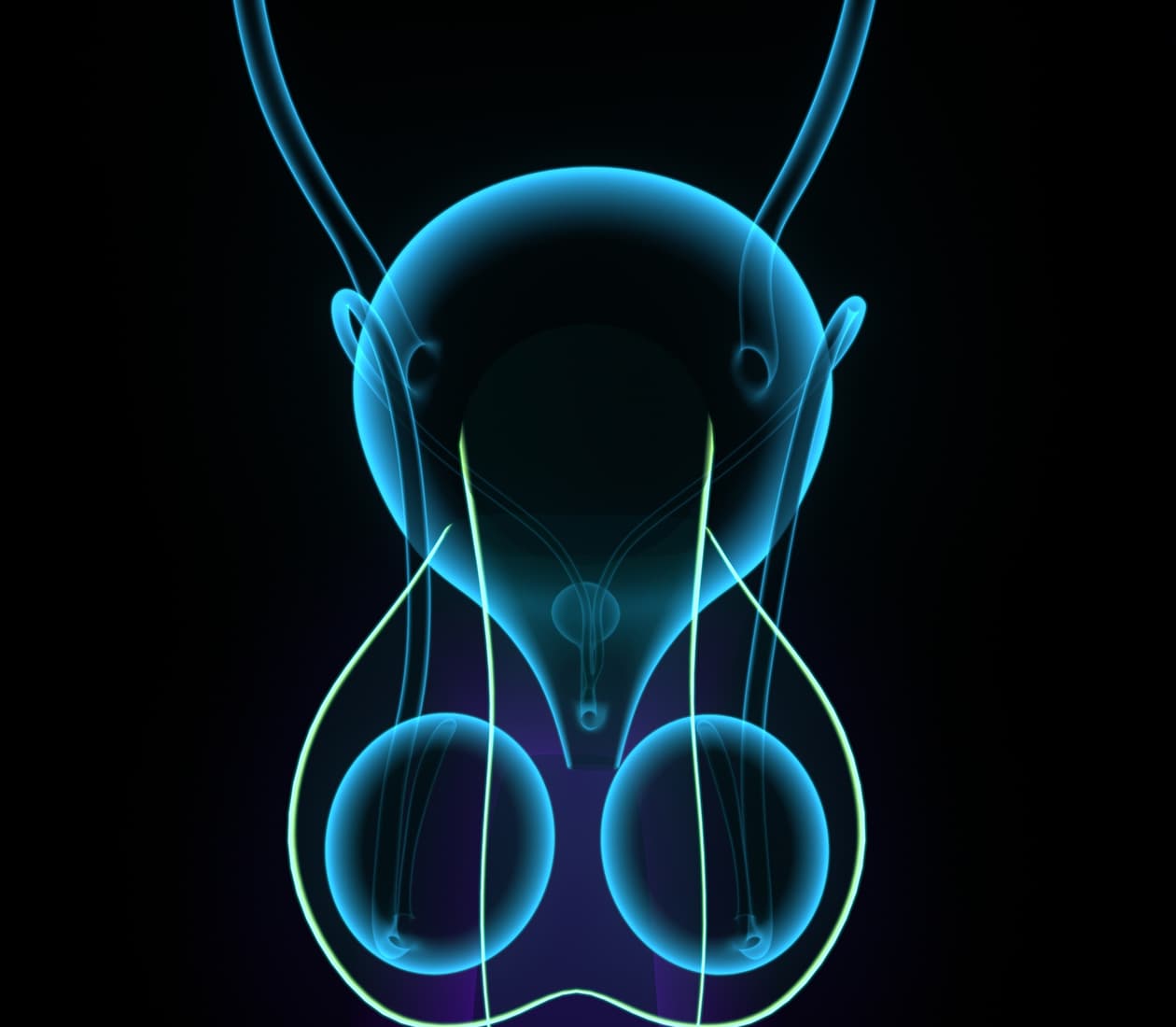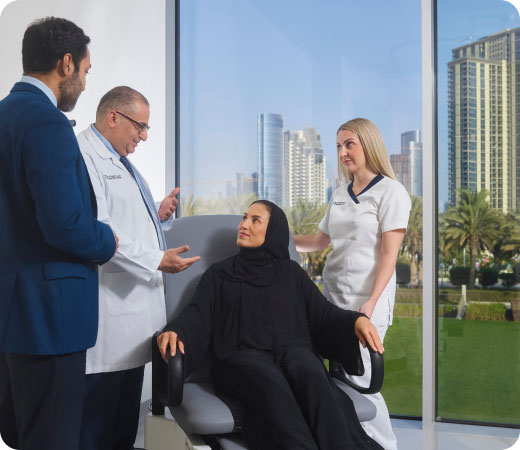
The Testicular Cancer Program provides advanced treatment and innovative procedures for men diagnosed with testicular cancer.
The Testicular Cancer Program at Cleveland Clinic Abu Dhabi offers the most advanced approaches to diagnosing and treating testicular cancer, close to home. Our multidisciplinary team consists of surgical, medical and radiation oncologists, experienced in performing the latest, minimally invasive surgical, medical, and non-surgical techniques to ensure patient comfort and the best possible outcome.
Our program also offers specialized radiologists and pathologists who are experts in their field, offering the latest developments in cancer research and technology. Having dedicated imaging and pathology specialists for each cancer type ensures accurate assessment helping to detect and diagnose cancer at an early stage.
We offer the very latest radiation oncology therapies for treating testicular cancer, supporting better outcomes for our patients. We offer state-of-the-art stereotactic radiotherapy and Ethos adaptive radiotherapy, a cutting-edge treatment modality that combines advanced imaging technology with innovative radiation therapy techniques.
Working together, our expert team provides support for men diagnosed with testicular cancer, with every patient receiving the most discrete, compassionate, and personalized care possible.

We work closely with Cleveland Clinic in the US, taking a collaborative approach to care and offering access to one of the world’s most experienced teams in treating a range of cancers – an important differentiating factor when it comes to cancer care. Working together, we diagnose your condition and meet regularly as a Tumor Board to discuss each patient and ensure the most appropriate decisions about your customized treatment are made.

Testicular cancer occurs when cancerous cells develop in the tissues of a testicle. It is the most common cancer in men aged 20 to 35 but it usually is curable.
There are two main types of testicular cancers:

Talk to your doctor if you have any of the following symptoms:
It is not known what causes testicular cancer. However, several risk factors for developing testicular cancer have been identified, including:

If your doctor suspects testicular cancer, a physical exam will be performed and a full medical history taken, followed by an ultrasound. The painless test allows the doctor to see any abnormalities within the testicle. If the ultrasound shows evidence of cancer, surgery to remove the testicle is performed and it is then examined to see if cancer is present. Testicular cancer can only be diagnosed after the testicle is removed. Removing a small piece of tissue via a biopsy is not possible as penetrating the testicle can make it difficult to treat cancer (if it is discovered). Other diagnostic tests include:
Treatment for testicular cancer will depend on the stage of the cancer, which refers to how much it has spread.

It is not possible to prevent testicular cancer, but early detection is very important. Regular self-examinations should be performed, particularly if you have any of the risk factors for developing testicular cancer.
Being aware of any changes in your testicles (including lumps, hardness, pain, or a change in size) should always be discussed with your doctor immediately.

The Testicular Cancer Program at Cleveland Clinic Abu Dhabi consists of a multidisciplinary team of caregivers, including:

Speak with our Contact Center for assistance
Request an Appointment 800 8 2223 International Patients